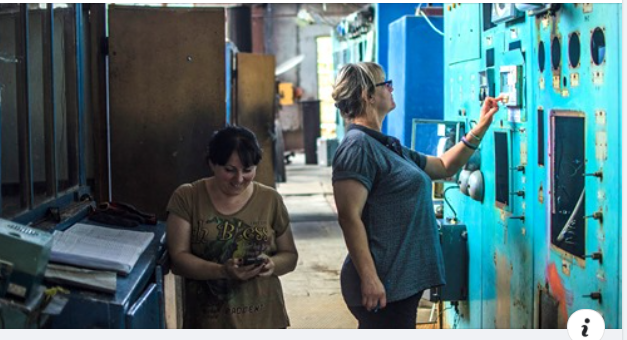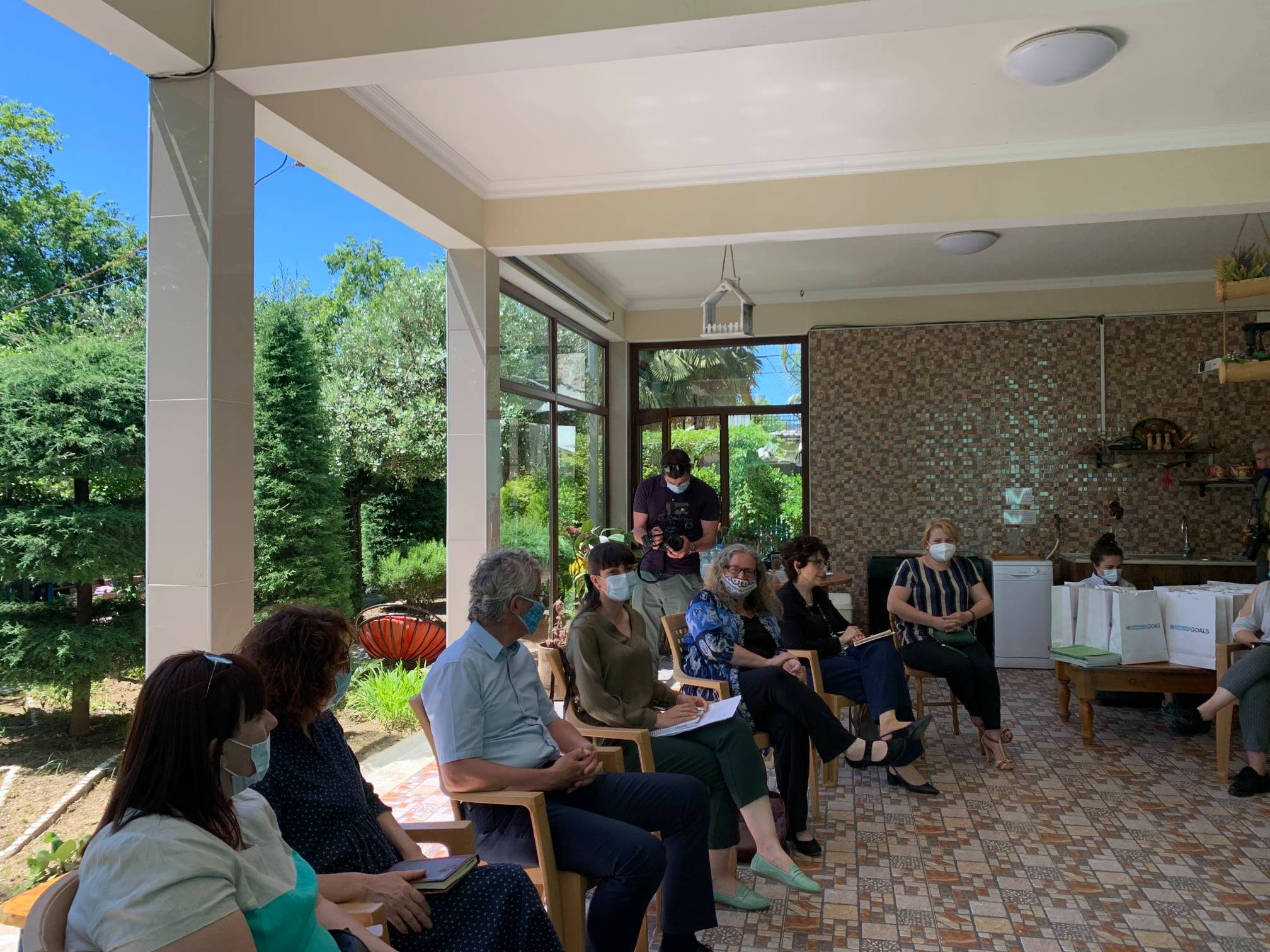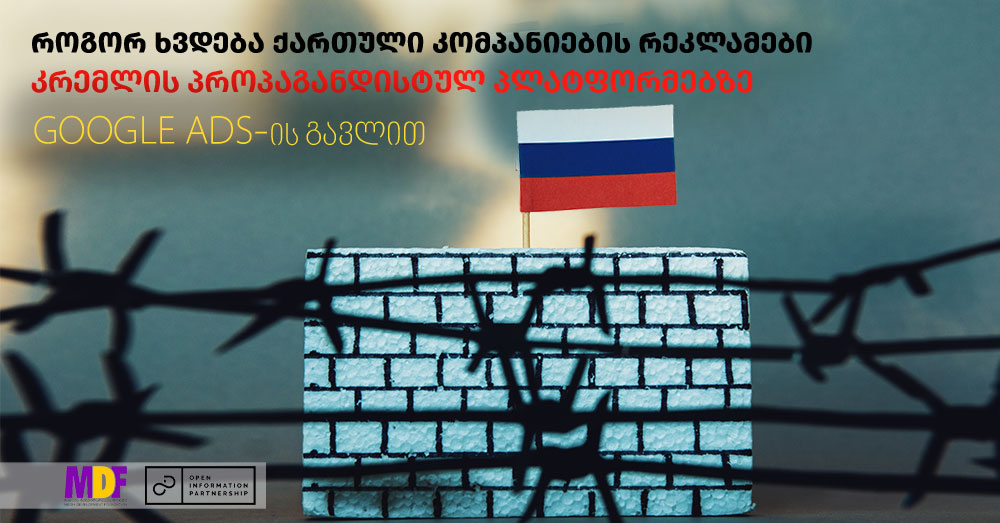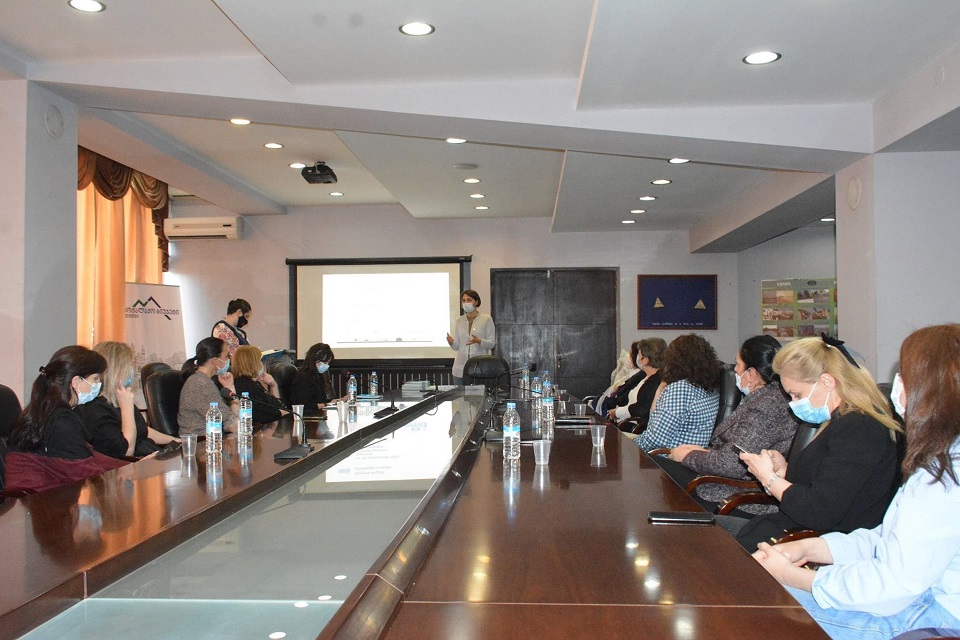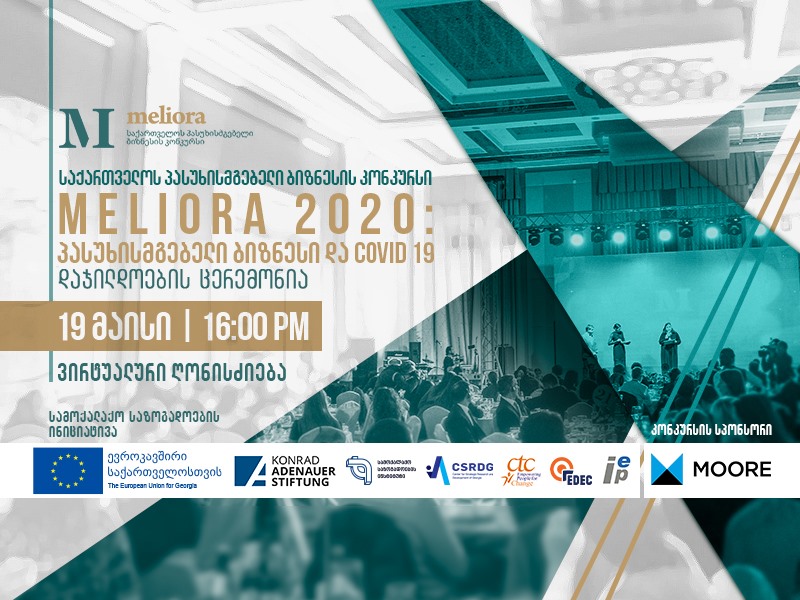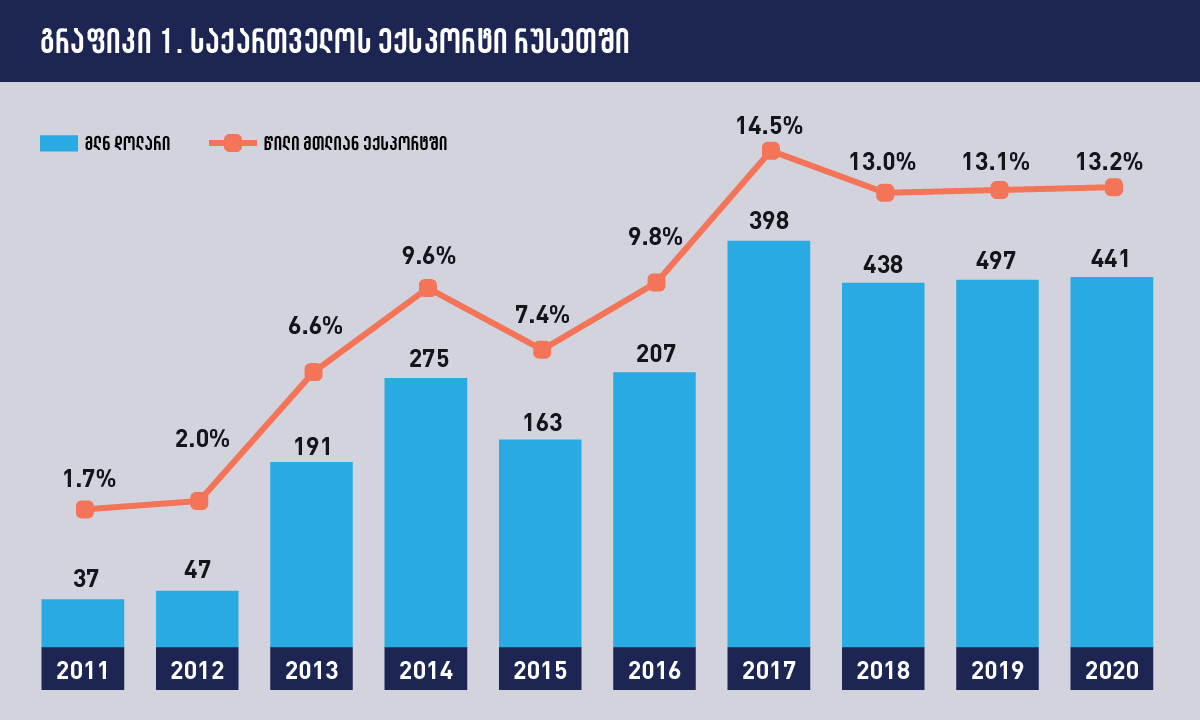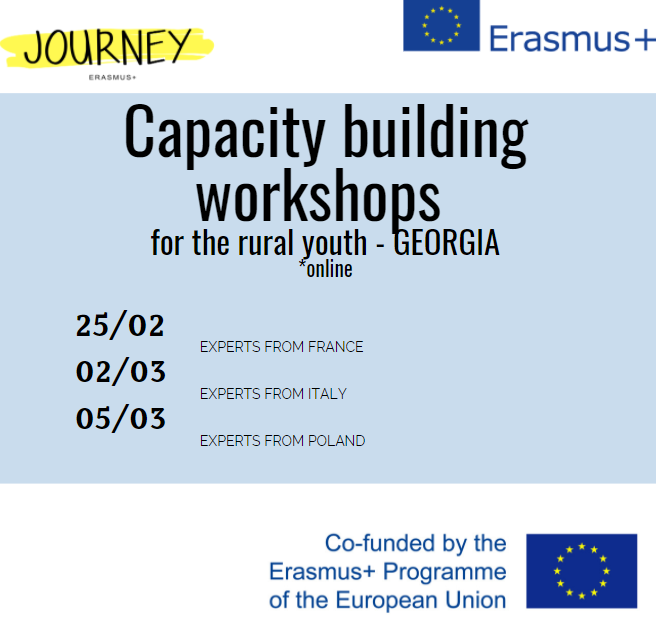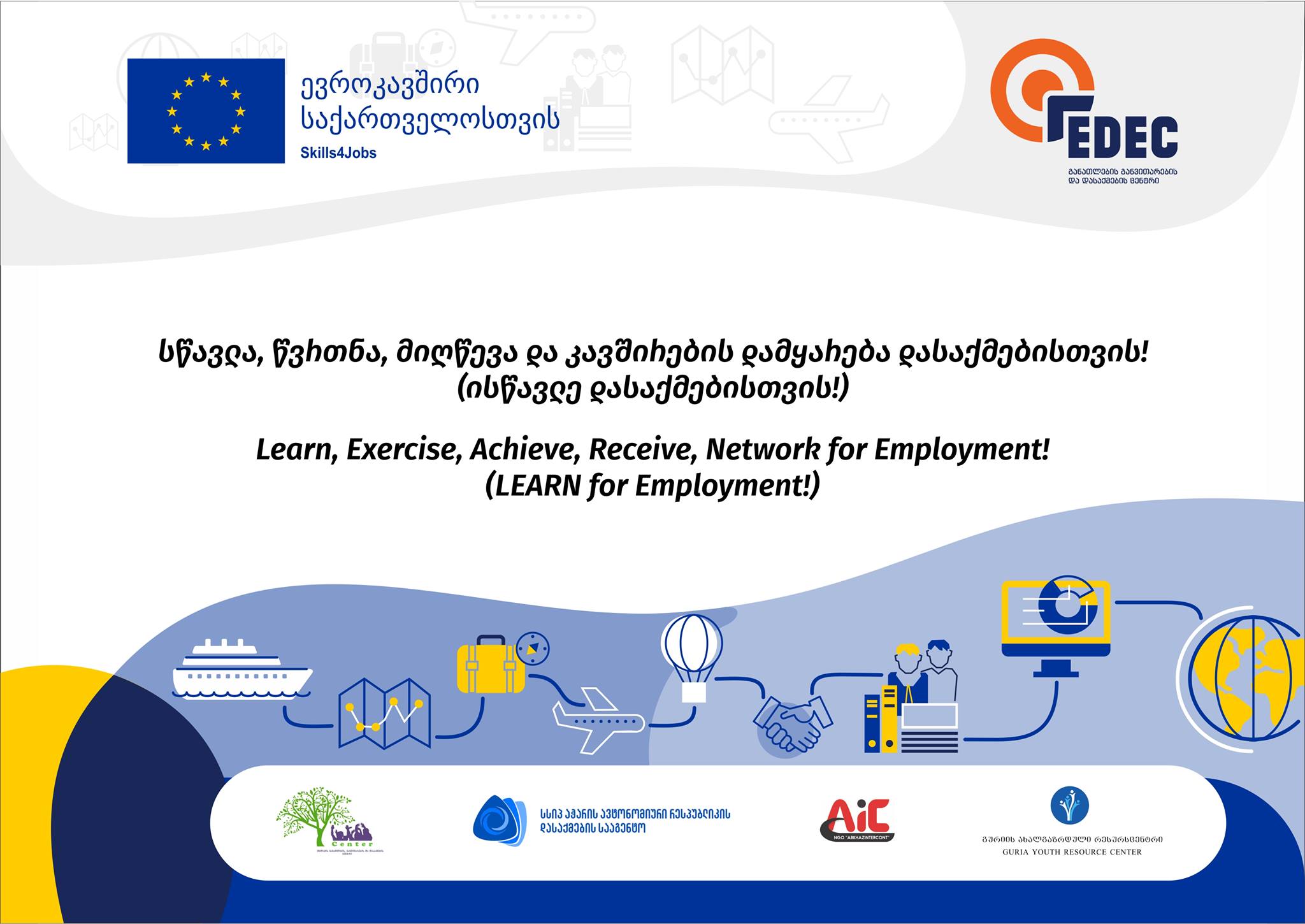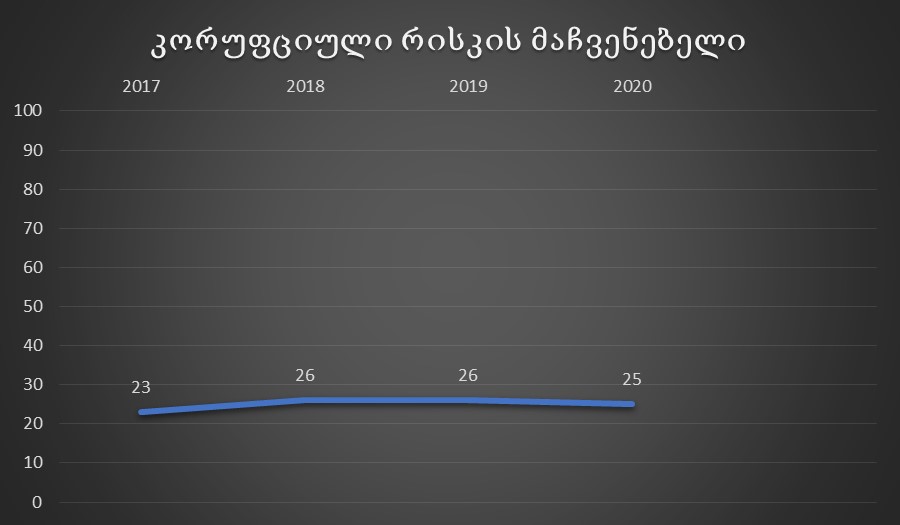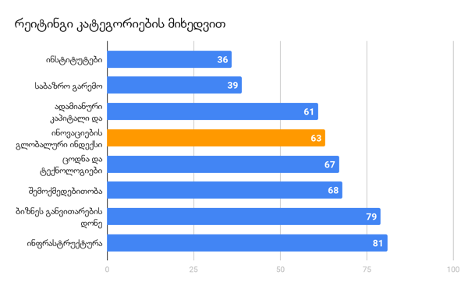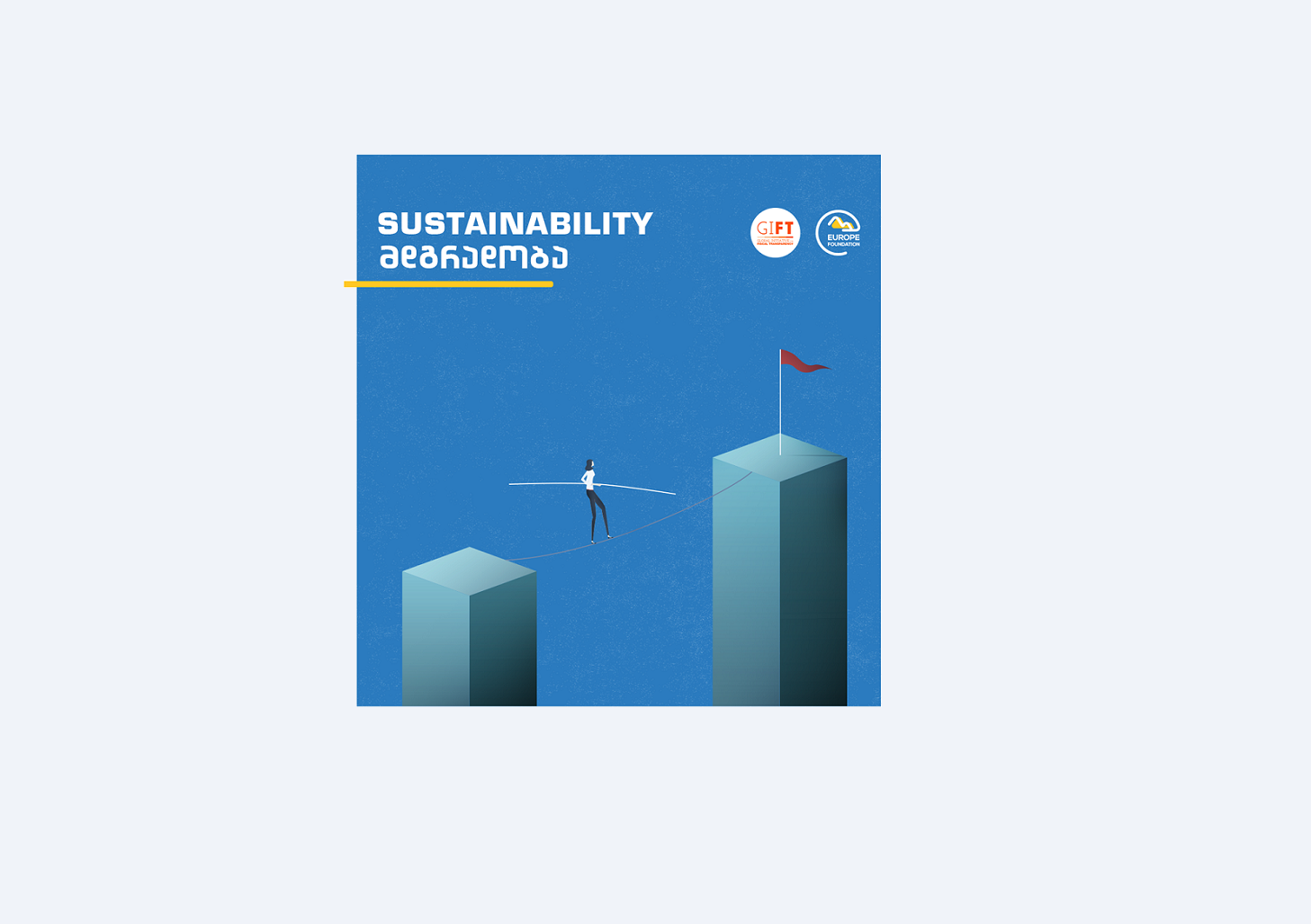News
Tbilisi. How can Georgian business benefit from becoming ‘greener’? - Find out on the e-Cards produced with the support of the UNIDO and EU4Environment programme…
Source: www.euneighbours.eu
Samegrelo. Ms. Sabine Machl, the UN Resident Coordinator in Georgia, met with the local women entrepreneurs and farmers in Zugdidi.
“Participants provided information about the current economic situation in the region, the impact of the pandemic on small and medium-size businesses, challenges and needs. The second part of the meeting will be focused on the discussion about the challenges of women entrepreneurs.
The women attendees of the meeting lead small and medium size businesses. They developed their business with the support UN Women project "Joint Action for Women's Economic Empowerment in Georgia" funded by the Norwegian Government”, is noted in the statement.
Read more…
Source: The organization’s page in the social network
Tbilisi. The Media Development Foundation (MDF) has prepared the present report within the framework of the research project implemented by Open Information Partnership. Think tanks from 5 countries (Poland, Lithuania, Georgia, Estonia, Czech Republic) have studied the issue of advertising the products of local companies on Kremlin propaganda websites through Google Ads.
The Media Development Foundation participated in the research from Georgia. The report reflects Georgia’s findings. The report provides key findings of the research, methodology; a separate chapter is dedicated to how Google Ads works.
The first part of the report covers the issue of Georgian companies’ advertising on Kremlin propaganda websites; the second part is about the ads placed on Sputnik news agency operating in Georgia and the third part involves information about which company responded to the research findings. The final part reviews the profiles of those media outlets that are Kremlin propaganda platforms.
Read more…
Source: www.mdfgeorgia.ge
Samegrelo. UN Women and the Food and Agriculture Organization of the United Nations have started promoting the economic empowerment of women farmers in the region of Samegrelo-Zemo Svaneti.
„As part of the project “Promoting the Economic Empowerment of Women Farmers through the Support of Farmer Field School (FFS) Approaches”, the representatives of the two UN agencies met with the current and potential partners in the target region and discussed future prospects for cooperation. In particular, the content and goals of the project were introduced to the organizations working on the issues of women’s empowerment in Zugdidi Municipality; a consultation meeting was held with the head of the Social Protection Department, Gogi Revia. As a result, future plans for the cooperation between UN Women and the municipality in raising awareness on one of the components of the project - women’s rights and domestic violence - have been outlined.”
Read more…
Source: georgia.unwomen.org
Tbilisi. On 25th of May Business and Technology University (BTU) will host a virtual employment forum – FEMTECH.
“Forum aims to provide employment opportunities to women and girls, who have graduated BTU Coding School.
In this way the University tries to support the graduates with employment opportunities in ICT sector. BTU is one of the signatories of the Women’s Empowerment Principles (WEPs) and has already launched a number of interesting initiatives to empower women and girls”.
Read more…
To register for the forum, please visit the following link…
Source: UN Women Georgia’s page on the social network
Tbilisi. Fair Labor Platform releases a statement in regard to International Workers’ Day.
"In Georgia, one part of workers meets May 1 jobless, while another part is in dangerous working conditions. The multifaceted and pervasive crisis, occurred as a result of the COVID 19 pandemic, is a proof that the current political and economic system fails to provide a sustainable, fair and secure daily life for workers and their families. The crisis confirms that there is also necessity of fundamental changes and fight for them”, - is noted in the joint statement.
Read more…
Source: socialjustice.org.ge
Tbilisi. On May 19, Georgia’s Responsible Business Awards Meliora 2020 will be conducted in an online format.
This year the Contest is intended to take place in a special format and companies will be awarded for those projects and initiatives, which they have implemented to fight against the COVID pandemic within the framework of their corporate social responsibility (CSR). “At the award ceremony, companies will be awarded for projects they have implemented to overcome the crisis caused by the pandemic, while categories are going to be as follows: supporting employees, supporting clients, customers, and suppliers, supporting society and local communities, as well as supporting SMEs and most suffered industries.
Georgia’s Responsible Business Awards Meliora 2020 is sponsored by Moore ABC. Meliora 2020 is implemented within the framework of the project “Civil Society Initiative: Sustainable, Open and Accountable Civil Society Organizations for Development of Georgia” funded by the European Union and the Konrad Adenauer Foundation (KAS)”, Georgia’s Responsible Business Awards.
Read more…
Source: meliora.ge
Tbilisi. The European Union (EU) and the United Nations Development Programme (UNDP) continue inviting Georgian companies of the packaging value chain to apply for co-funding that will assist them in increasing sales, boosting employment, improving production quality, and creating new products and services.
The grant initiative is part of a broader EU-funded program “The Innovative Action for Private Sector Competitiveness in Georgia” implemented by the UN agencies in cooperation with private companies and business associations. Drawing on an overall budget of up to USD 6 million, the initiative aims to assist Georgian entrepreneurs, improve the legal environment and access to finance, and strengthen ties with the EU.
Read more…
Source: The web-page of the organization
Tbilisi. Social Justice Center (former EMC) has published a research document: Employment policy for ethnic minorities. The research has published within the framework of a project - “Strengthening ethnic minority integration and rights protection via research, education, advocacy, and confidence-building activities”.
“Current reality brings double damage to the employment of ethnic minorities because poor access to education, public services, including economic support programs, weak language competencies and radical omission of minority languages in the language policy - a discriminatory environment make it difficult for them to engage and participate in social and economic life.
The purpose of this document is to review relevant experiences of ethnic minority employment policies, which may become an interesting resource for the state in the process of considering special needs of ethnic minorities in the employment policy and pursuing additional supportive policies”.
Read more…
Source: socialjustice.org.ge
Tbilisi. POWER - Promoting Opportunities for Women’s Economic Resilience is a project of the Economic Policy Research Center (EPRC), which aims to explore what needs women have in business today. Within the framework of the project, the organization offers activities that serve to share knowledge and experience.
The study “Women in business: Opportunities and challenges of the pandemic” contain a review of general situation of women entrepreneurs, starting business as well as opportunities and challenges of its operation, problems caused by the COVID-19 pandemic, recommendations that need to be considered in order to ensure common support of activities of female entrepreneurs and overcome negative economic consequences entailed by COVID-19 in Georgia.
The project is supported by the Good Governance Fund of the British Embassy.
Read more…
Source: The website of the organization in a social network
Tbilisi. According to the assessment of the Transparency International Georgia the pandemic has "naturally" reduced Georgia's economic dependence on Russia. After the end of the pandemic period, Georgia will have the opportunity to structurally transform its economy and become less dependent on Russia.
“At present, the high dependence of wine exports on the Russian market and wheat imports from Russia remain the main challenges for Georgia's economic security.
The goal of the Georgian government should be to minimize economic dependence on Russia. Therefore:
In the post-pandemic period, Georgia should work even more actively to diversify its export markets, especially in terms of wine exports;
Local production of wheat and diversification of wheat imports should be promoted as much as possible;
Unlike previous years, after opening the borders, Russia should not be the target market for attracting tourists”.
Read more…
Source: transparency.ge
To start your own business is not always easy. Especially if it is your duty to take care of home, children and parents, if nobody supports you, and it is often unclear where to start doing things from. There are quite a lot of international programs that help women start their own business, acquire an education and protect their own economic rights.
How to find out about all this?
It is often difficult to find the information you need. The EU Eastern Neighborhood program combines all ongoing EU projects that help women develop their business.
Imereti. Local Democracy Agency (LDA) is happy to announce a start of series of practical trainings "Capacity building workshops for youth from small towns and rural areas on the development of business ideas" in #AZ, #UA, #GE. Online trainings will help you to find yourself in a business world. Experts from PL, IT, FR will prepare interesting topics. Youth could work in smaller groups to better understand in be involved. The deadline for registration is February 15, 2021.
Follow the registration link...
Read more…
Source: The organization’s page on the social network
Tbilisi. The history of the social enterprise “Kombinizona” ("Overalls") began with a 10-year action plan, a borrowed sewing machine, and a unique concept of a small showroom. The innovative sewing factory ISF Georgia's first multi-brand social enterprise produces therapeutic designer clothes based on the research of “Colour Acceptance in Georgia”.
The COVID19 pandemic challenged many businesses, including “Kobminezona”. Yet, despite the crisis, and with the EU support, the multi-brand adaptive apparel company not only could create jobs but also increased the number of employed people with disabilities. Today, the enterprise employs 60-70 people, half of them PWD.
Read more…
Source: The web-page of the organization
Kvemo Kartli. Founded in 2007 CaucasPack produces disposable packaging materials. In the spring of 2020, when Georgia introduced strict regulations to prevent the spread of COVID19, the company, like most other business operators, faced many difficulties.
With the support of the European Union and the United Nations Development Program, in response to the COVID19 crisis CaucasPack adjusted its production and managed to retain all of its 99 employees.
Read more…
Source: The web-page of the organization
Tbilisi. EU is proud to transfer a €60 million (GEL 240 million) grant to help Georgian citizens and businesses through the pandemic. Funds will contribute to the Government Anti-Crisis Economic Plan.
More here...
Source: EU’s page in the social network
Tbilisi. The EU funded project Learn, Exercise, Achieve, Receive, Network for Employment! (LEARN for Employment!) aims at promoting an efficient transition model from education to the labor market largely supporting increased employment, social integration, and decreased poverty and vulnerability levels.
“Within the project, 3,240 job seekers will gain the skills and knowledge necessary to apply to jobs in the open labor market; among them, at least 720 beneficiaries will participate in VET, on-the-job training, and internship programs, and a minimum of 50% of them will become employed”.
Read more…
Source: The organization’s page in the social network
Tbilisi. As the Institute for Development of Freedom of Information (IDFI) updates, on November 19, Trace International released new indicators about the risk of corruption in business.
“According to 2020 data, Georgia ranks 28th among 194 countries with 25 points of risk of business corruption. In 2019, Georgia ranked 27th among 200 countries with 26 points, which was identical to the 2018 figures and deteriorated compared to 2017 data, when Georgia ranked 25th among 200 countries with 23 points. These data show that the risk of business corruption has been gradually increasing in recent years. Though the last year this risk is reduced by one point, in international ranking Georgia has still moved one level back”, - is stated on the website of the organization.
Read more…
Source:idfi.ge
Tbilisi. The EU transferred €100 million today as part of our COVID-19 support to Georgia. These funds will support the macro-financial stability of the country, making it easier for Government to focus on assisting citizens & businesses cope with the pandemic.
Find out more about these funds here...
Find out about EU support to Georgia on COVID-19 here…
Source: The EU’s page in the social network
Tbilisi. The Civil Society Institute has published a guide for social enterprises and non-entrepreneurial legal entities.
Legislative acts of Georgia do not recognize such terms as a social enterprise and social entrepreneurship, however, there are entities that operate in Georgia and carry out social entrepreneurship. Interested people have the opportunity to carry out social entrepreneurship both via setting up a legal entity under private law and taking into account an established international experience. A social enterprise refers to those legal entities under private law that are functionally considered to be social enterprises and economic activities of which imply primarily the achievement of social goals. According to the legislation of Georgia, civil society organizations, which are meant to be non-entrepreneurial (non-commercial) legal entities, along with their main activity are authorized to perform any activity that is not prohibited by law, including an ancillary entrepreneurial activity. As a matter of fact, an ancillary entrepreneurial activity may or may not be that of a social entrepreneurial nature. This guide is intended for both social entrepreneurs and non-entrepreneurial (non-commercial) legal entities.
The guide covers issues related to legal management, financial accounting-accountability, and tax administration of legal entities under private law.
The guide is developed by the Civil Society Institute (authors: Levan Paniashvili, Chief Lawyer of the Institute, Davit Tivishvili, Financial Manager of the Institute) in collaboration with Social Enterprise Alliance and with the support of the International Center for Non-for-Profit Law (ICNL).
Guide...
Tbilisi. According to the Institute for Development of Freedom of Information (IDFI), the Global Innovation Index (GII) provides a ranking of up to 130 countries by their capacities for innovation. Through up to 80 indicators grouped into 7 categories, GII aims at performing a comprehensive innovation ranking in innovation input and innovation output indices.
“The 2020 GII ranking turned to be positive in terms of an innovation development tendency in Georgia as a whole, however, there was also revealed a slowdown in progress. In particular, results deteriorated in 5 categories, if compared to the last year, which fact eventually had a negative impact on the overall rating of the country. The 2020 Global Innovation Index results make it obvious that there is a stagnation in specific areas in terms of economic and innovation development”.
Read more…
Source: idfi.ge
Europe Foundation published a post about positive examples in Ozurgeti Municipality where budget related-issues were resolved through a participatory principle
“GIFT (Global Initiative for Fiscal Transparency) has declared 10 principles of public participation in fiscal policy to implement citizen-oriented budgeting policy. One of these principles is SUSTAINABILITY”, - Is mentioned in the post, - “There are some positive examples in Ozurgeti Municipality where budget related-issues were resolved through a participatory principle helping to institutionalize public participation in fiscal policy. Founder of Progress House Mindia Salukvadze is sharing his experience of collaboration with local government and some positive results he has seen in Ozurgeti municipality”.
Read more…
Source: Page in the social network



